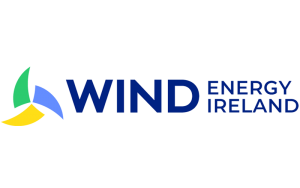Renewables, recycling, and restoration
5 October 2021Ireland’s transition to a low carbon energy future
5 October 2021Decisive moment for offshore wind energy
The Maritime Area Planning Bill is the single most important piece of legislation for the Oireachtas right now, writes Wind Energy Ireland CEO Noel Cunniffe.
It will determine whether the target of 5GW of offshore wind by 2030 is truly achievable.
Its publication, delayed by the pandemic, is almost two years behind schedule so there is no time to lose. It must be the key priority for the Oireachtas.
Like every Bill it must be thoroughly scrutinised by legislators, but it must remain at the top of their agenda until enacted. Every month of delay is another month relying on polluting fossil fuels instead of wind energy.
As well as getting the Bill through quickly, there are four key areas where it must be improved.
Flexibility
Given the rapidly evolving technology and lengthy delivery timelines associated with offshore wind energy there is a significant need for design and consent flexibility.
The EU Commission says that providing “flexibility during the design and pre-planning phase of offshore wind energy projects and…a degree of freedom to optimise wind turbine parameters prior to construction…is a proven and acceptable approach”.
But this approach is missing from the Bill, preventing developers from using the most up-to-date technology which would allow them to cut electricity prices.
Delivering for 2030
We cannot reach the 5GW target with only the ‘Relevant Projects’ but the Bill requires other projects to wait until the new Maritime Area Regulatory Authority (MARA) is established before they can apply for a Maritime Area Consent (MAC).
But MARA will only be ready, at best, 12 to 18 months after the Bill is enacted. We simply cannot connect 5GW by 2030 if projects must wait another two years for a MAC.
The Bill must give the Minister the power to grant MACs to projects that can be connected to the grid by the end of the decade.
Surveys
As well as MACs, some projects need survey licences. There is no way for projects to obtain a licence for marine surveys outside the 12 nautical mile limit and, unless the Bill is changed, there won’t be, until MARA is established.
This prevents floating wind projects from moving forward. If they cannot carry out surveys to prepare for planning, it kills their chances of delivering by 2030.
Amending the Bill to enable projects to apply for licences now would help to kickstart a new floating wind energy industry.
Planning permission
Obtaining a MAC does not guarantee planning permission and a project might initially be turned down by An Bord Pleanála. As the Bill is currently drafted the project would automatically lose its MAC, sending the process back to the beginning at an enormous cost in time.
And time, as the IPCC recently reminded us, is something we do not have. If a project is turned down for planning, but can fix the problem and put in a new application, why stop them?
Long-stop dates can be used to prevent projects hoarding marine area. This is much fairer and makes the 2030 target more achievable.
And hitting that target is imperative. Ireland faces growing security of supply challenges and is increasingly exposed to climate change. We must develop offshore wind farms as quickly as possible.
To do this we must have a fair and transparent planning system and that is why the Maritime Area Planning Bill must be passed before the end of the year.
Noel Cunniffe is CEO of Wind Energy Ireland.
T: + 353 45 899 341
E: office@windenergyireland.com
W: www.windenergyireland.com

